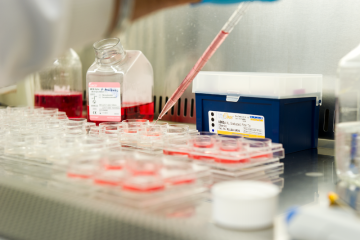Project grant
A high-throughput-compatible animal-cell-free miniaturised thymic organoid model for thymus biology studies and in vitro T cell production

At a glance
In progress
Award date
January 2023 - November 2024
Grant amount
£198,668
Principal investigator
Professor Clare Blackburn
Institute
University of Edinburgh
R
- Replacement
Read the abstract
View the grant profile on GtR
